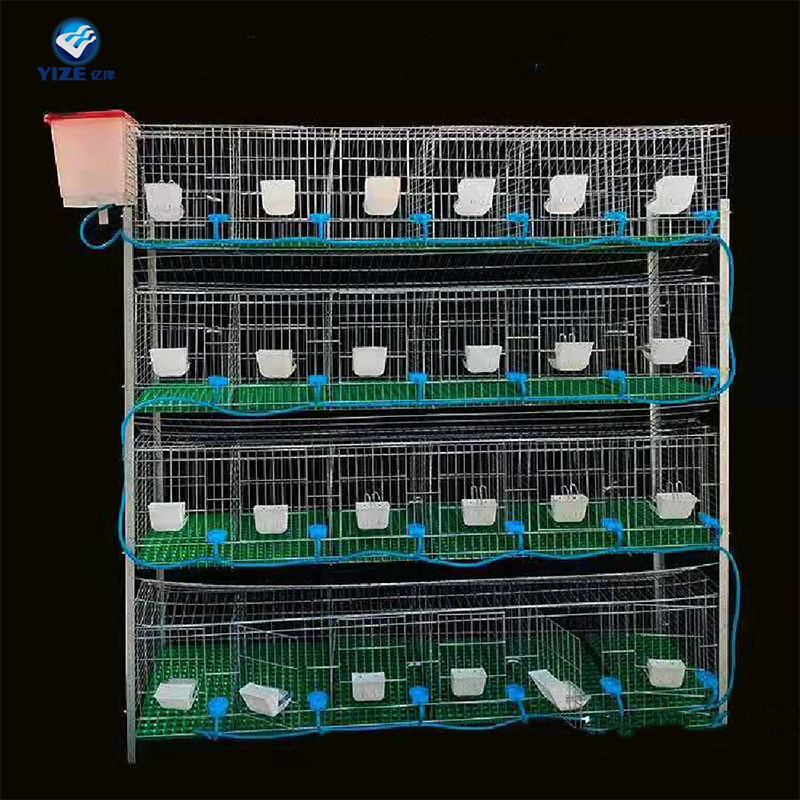High-Efficiency Animal Feed Pellet Mill Machine for Sustainable Livestock Nutrition Production
Jul . 27, 2024 16:41 Back to list
High-Efficiency Animal Feed Pellet Mill Machine for Sustainable Livestock Nutrition Production
The Importance of Animal Feed Pellet Mill Machines
In the rapidly evolving agriculture sector, the demand for efficient animal feed production is more critical than ever. One of the key advancements that have revolutionized this domain is the animal feed pellet mill machine. This equipment plays a vital role in the formulation and production of high-quality animal feed pellets, which are essential for the health and growth of livestock, poultry, and aquatic animals.
Understanding Animal Feed Pellet Mills
Animal feed pellet mills are specialized machines designed to compress and mold feed ingredients into pellet form. This process involves several stages, including grinding, mixing, conditioning, and pelletizing. The resultant pellets are not only easier to handle and store but also provide a more balanced and digestible diet for animals. The high density of pellets means they take up less storage space and can minimize waste associated with feed.
Pelletizing feed has numerous advantages. For one, the pelletized form makes it easier for animals to consume their food, reducing the chances of selective eating. Furthermore, pellets can be designed to meet specific nutritional requirements of different animal species, promoting optimum growth and health.
Benefits of Using Pellet Mills
1. Improved Nutritional Value Pellet mills enable the uniform mixing of various feed ingredients, ensuring that every pellet contains essential nutrients. This balance is crucial for livestock diets, where deficiencies can lead to health issues and reduced productivity.
2. Enhanced Digestibility The process of pelletizing helps in breaking down the feed particles, thereby making them easier for animals to digest. This increased digestibility translates to better absorption of nutrients, promoting healthier growth rates and overall well-being.
animal feed pellet mill machine

3. Reduced Feed Waste By converting loose feed into pellets, farmers can significantly lower the amount of feed wasted during handling. Loose feed often gets spilled or left uneaten, whereas pellets are more appealing and manageable for animals.
4. Convenient Storage and Transport Pellets are denser than loose feed, making storage easier. They require less space and are less prone to spoilage when kept in proper conditions. This efficiency is particularly beneficial for large-scale farming operations where space and logistics are crucial factors.
5. Versatility Pellet mills can be adjusted to produce pellets of varying sizes and compositions, catering to different animal species and their dietary needs. Whether for chickens, cows, pigs, or fish, pellet mills can produce tailored feed solutions.
Industrial and Small-Scale Applications
Animal feed pellet mills are not limited to large-scale operations. Small-scale farmers can also benefit from these machines, as they allow for the production of customized feed mixes at a lower cost. Investing in a pellet mill can potentially increase a farmer's profitability by enhancing the health and growth of livestock.
Modern pellet mills incorporate advanced technology, including automation and digital controls, to enhance production efficiency and consistency. They can be integrated into existing farming operations with relative ease, providing a seamless transition toward more efficient feed production.
Conclusion
Animal feed pellet mill machines are a fundamental part of modern agriculture, facilitating improved animal health, reduced waste, and increased efficiency in feed production. By investing in these machines, farmers not only optimize their operations but also contribute to sustainable agricultural practices. As the global demand for animal protein continues to rise, pellet mills will play an essential role in meeting these needs while ensuring that livestock is fed with nutritious and easily consumable feed. In the ever-competitive farming landscape, the importance of adopting such innovative technologies cannot be overstated.
-
Hot Sale 24 & 18 Door Rabbit Cages - Premium Breeding Solutions
NewsJul.25,2025
-
Automatic Feeding Line System Pan Feeder Nipple Drinker - Anping County Yize Metal Products Co., Ltd.
NewsJul.21,2025
-
Automatic Feeding Line System Pan Feeder Nipple Drinker - Anping County Yize Metal Products Co., Ltd.
NewsJul.21,2025
-
Automatic Feeding Line System - Anping Yize | Precision & Nipple
NewsJul.21,2025
-
Automatic Feeding Line System - Anping Yize | Precision & Nipple
NewsJul.21,2025
-
Automatic Feeding Line System-Anping County Yize Metal Products Co., Ltd.|Efficient Feed Distribution&Customized Animal Farming Solutions
NewsJul.21,2025






